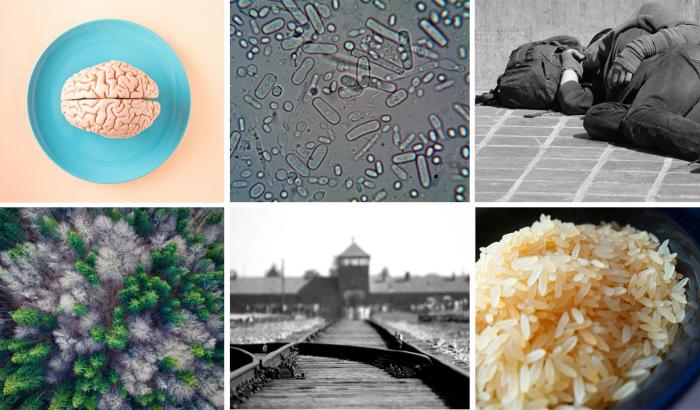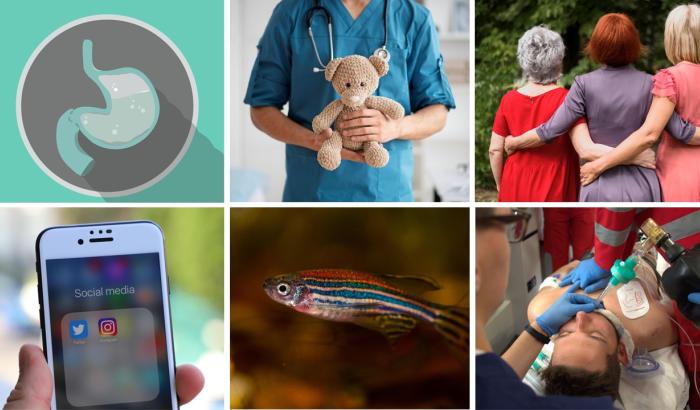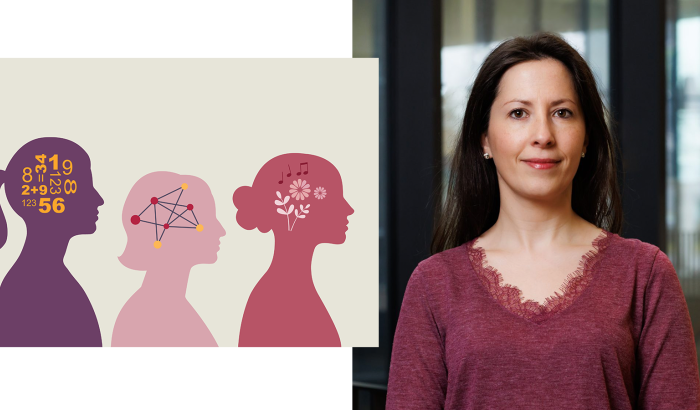University of Luxembourg/Elisabeth Letellier
Elisabeth Letellier (middle) and her team
Why do you research colorectal cancer in particular?
Because it is a major type of cancer in western countries and because its incidence is increasing among younger persons, i.e. between 40 and 50 years of age. A few years ago, it was thought to be a disease of the elderly, but it has become increasingly clear that it is now a severe medical problem in a wider population scope.
What are the reasons for this?
Besides the non-modifiable factors, such as genetic mutations, unfavorable environmental factors – lifestyles and diets - might be a reason. These differ from country to country. Developed countries have the highest incidence and mortality of colorectal cancer. We do not know exactly why. It is suggested that westernized diet contributes to the development of colorectal cancer, however this is still speculation, as everything we know is derived from epidemiological studies. These allow retrospective observations, but no direct study of cause and effect. We want to change this and go a step further.
How?
We use "mouse models" for experiments. For instance, we give mice suffering from colorectal cancer a human microbiome, meaning a whole collection of bacteria usually present in the human gut. Then we put them on different diets, in order to track changes during disease progression. Such mouse models are necessary, as these are easier to control: The mice are genetically identical and have the same microbiome so that we can directly test the effect of different diets. Of course, these studies need to be confirmed afterwards in studies with humans. Our work addresses a crucial aspect, that colorectal cancer research is currently missing: dietary guidelines for colorectal cancer patients. During chemotherapy for instance, doctors give dietary recommendations, but there are no scientifically substantiated guidelines.
What other strategies do you research to try to combat colorectal cancer?
We try to find ways to reverse “cold” colorectal cancer tumors to “hot” tumors. Melanoma and lung cancer for instance are “hot” cancers, meaning that they are inflamed, which is not the case for colorectal cancer. If we target the metabolism of cancer cells or the tumor microenvironment, among which is the microbiome, we might change them to hot tumors, meaning that the immune cells can better infiltrate the tumor and possibly eradicate it.
In your laboratory, you address another field of research. How will this benefit colorectal cancer patients?
We develop biomarkers for diagnostics to identify individuals suffering from colorectal cancer very early during the onset of the disease. Furthermore, we develop prognostic biomarkers, which can predict how the progression of the disease will look like for a given patient. This might additionally tell you which patient will likely respond to a therapy and which patient will not. Also, if you identify low risk patients, you can possibly exclude chemotherapy for them, which is a very stressful procedure. If chemotherapy can be avoided, it should be avoided, also because it can result in the development of resistance to therapy. Having good biomarkers available helps avoid this.
Text: Tim Haarmann
Photo: Elisabeth Letellier
Infobox
Elisabeth Letellier is co-heading the Molecular Disease Mechanisms Group at the Department of Life Sciences and Medicine at the University of Luxemburg. She studied Pharmacy at the University Paris V Descartes in Paris and performed her PhD thesis in Molecular Biology at the German Cancer Research Center (DKFZ) in Heidelberg. She joined the University of Luxembourg in 2009.



